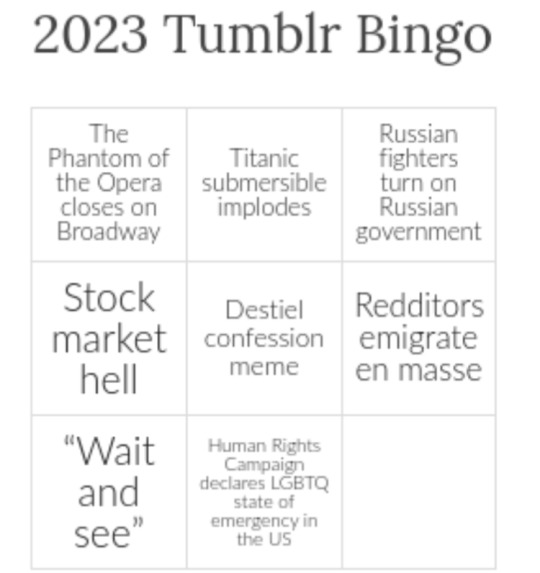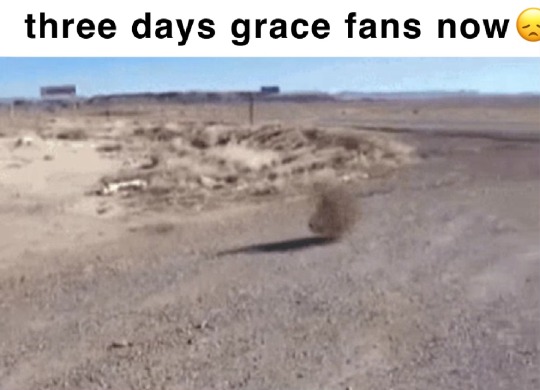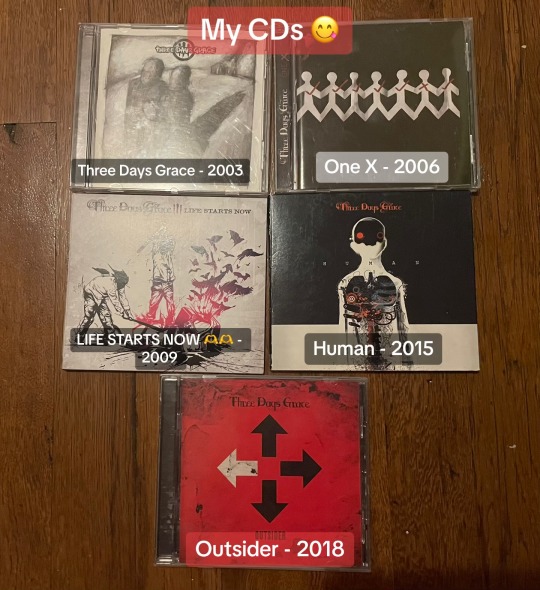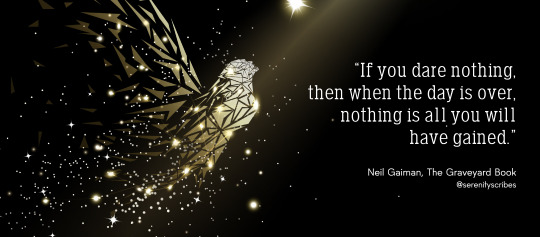#Neil Stock
Explore tagged Tumblr posts
Text
Some men see things as they are and ask "Why … change?" : 2003 : Neil Stock, Ofcom
A colleague would arrive at my workplace some Mondays with evident cuts and bruises. A tragic case of domestic violence? No. He was a loyal fan of Millwall Football Club, a team characterised by its “historic association with football hooliganism” (Wikipedia). Did I overhear anyone comment that it might be considered inappropriate to work in a government quango when resembling the runner-up from five rounds with Mick McManus? No. Colleagues alleged that this young buck was untouchable because he held finance qualifications that his boss lacked, despite their requirement to legally sign off public accounts. That same boss was then promoted to personnel director, despite having demonstrated to me a similar skills deficit, and then to deputy chief executive of our organisation. Ho hum.
Relevant qualifications and experience appeared to be non-essential for appointment to the management class at The Radio Authority. If you possessed ‘the right stuff’, prior employment in a Norfolk chicken processing factory could prove appropriate for a job regulating Britain’s commercial radio industry. One woman in my small crowded office talked incessantly, inserting expletives into every other sentence. Did any colleague suggest this to be inappropriate behaviour, particularly when some of us were interrogating radio station managers by phone and recording our conversations? No. Once, an interviewee enquired if I was calling from home, having overheard swearing in our office. Er, no, I just work in a madhouse.
Arriving daily to cross the threshold of our office, I felt like one of those unsuspecting visitors knocking on the front door of ‘The Munsters’ home, only to be invited into a scary otherworld that was bafflingly grotesque. Why did I choose to stay there? Because it was the only job I had been offered after countless rejected applications during months of unemployment. And I knew that my private hell would end soon. In several months’ time, the government would be merging several small regulators, including ours, into one new huge one to which staff would be transferred en masse. Well, with the exception of our only two visible minority colleagues, one of whom was dumped in the new regulator’s basement call centre, the other who was told she would have to apply for advertised vacancies despite her lengthy loyal service to our organisation. Which decisionmaker in our midst did we suspect of having never torn up their dogeared ‘NF’ membership card?
In order to prepare us for employment in a modern state-of-the-art regulator, The Radio Authority’s workforce was sent to a government conference centre to watch our new leader, Stephen Carter, talk us through PowerPoint presentations promising us a bright new future. I left these events finally feeling ‘hope’, though some colleagues seemed to sense ‘tyranny’, preferring the security blanket of a dysfunctional abusive ‘family’ already tainted by a corruption scandal exposed on national television. Preferring paperwork to floppy discs, I suspect nobody in The Radio Authority had even needed to press the ‘PowerPoint’ function on their archaic desktop computers. Why should they bother?
Though I had never witnessed our department required to function as any kind of team, we were all sent on a ‘teambuilding’ awayday organised by one of those faceless global management consultancies. We were told to pull together to solve theoretical problems, to play childish games and express our feelings in ‘breakout’ groups. I was paired with a colleague from my office who admitted her early career objective was to work on ‘BBC Radio Four’s ‘Women’s Hour’ programme, though she had never sought training in radio production. My own ‘learning experience’ from that session was something I had observed before – our privately educated elite expect to succeed in their chosen shiny career without needing to put in any graft as practitioners.
I lacked acting abilities, having always volunteered to organise the sound for school plays, but at our awayday I was picked to roleplay a radio licence hopeful whose latest application had been refused, in dialogue with the officer who had turned me down. Having endured enough of that day’s preposterous exercises, I threw myself into this role, choosing to feign a nasal Northern accent and imitate a persistent applicant from Stoke who felt the Radio Authority was discriminating against him. My colleagues laughed loudly at my desperate attempts to win the argument against my posh counterpart. In fact, my performance was art imitating life. I had heard work colleagues often lampoon the speech of a licence applicant from Stoke, despite his experience in radio broadcasting. Naturally, my play-acting did not dent their snobbishness one iota.
I had not understood how convincing my role had been that day until, during The Radio Authority chairman’s monthly walkabouts round our office, he would greet me using the ‘Wayne’ name of the Stoke persona I had adopted … and neither was he being ironic or witty. I had been renamed. I corrected him each month, but he insisted on addressing me on the next occasion as ‘Wayne’. Though he transferred to the new regulator, the majority of our senior management either were not offered jobs there or decided to accept redundancy, I know not which. Given that some had never used a work computer, preferring to order underlings do the grunt work for them, it was difficult to imagine them integrating within a modern office environment.
Everyone in our department received an email requesting our thoughts on how the radio licence application process could be improved. It had been sent by our team deputy Neil Stock, who had surprisingly been promoted by somebody somewhere to lead the radio division within the new regulator a few months hence. I had lots of ‘thoughts’ on the subject so started banging them out on my desktop computer. I was 875 words into my spiel before suddenly halting, asking myself what the hell I was doing providing free insights from hard-bitten experience. Earlier in my working life, I had spent months writing a radio licence application. Stock had never. That application had won up against 39 competitors. I had started working in commercial radio two decades ago. Stock had never. I had launched a London commercial radio station that had attracted a million listeners per week within its first six months. Stock had never. Might he not be harvesting ideas from his ‘team’ to convince his new paymasters that he possessed some kind of grand plan?
This suspicion was confirmed when, not having initially responded to his request, Stock reminded me repeatedly that he still required my contribution. He knew I considered the present application system deficient in almost every aspect because I had told him as much in previous conversations. However, I had nothing to gain from assisting his meteoric rise through the regulatory ranks without commercial radio experience. As is evident from the raw stream of consciousness I wrote then and reproduce (uncorrected) here, my verdict on my employer’s licensing system was damning as a result of having watched it contribute to an increasingly disastrous commercial radio sector in Britain. But criticising The Radio Authority meant criticising my new boss, so I never replied.
Months later, we had moved to the modern office environment of Ofcom. At last, it felt as if I was living in the present century. However, I sat at my desk day after day doing nothing, sidelined by Stock. Eventually he invited me to join his sub-committee tasked with updating the paper licence application form, which seemed like continued attrition to divine my insights. We met a couple of times, during which I retained my counsel about the disastrous system, since it was evident that Stock contemplated only minor amendments rather than a full-blown overhaul. At the end of our final meeting, Stock concluded our discussions by announcing that the application form would remain exactly as it already was, with only the old logo on the front page to be replaced by ‘Ofcom’. I was still working in a madhouse!
One day, everyone in the radio section received an email from Stock requiring their presence at a team meeting, a novelty as no such meetings had occurred at The Radio Authority. We all filed into the glass-walled room in the middle of our floor, waiting to be addressed. I wrote a header in my notebook and expected to jot some bullet points, but what followed left me open-mouthed and unable to note a single word. The sole topic of discussion was these former Radio Authority employees’ refusal to update their working methods to support Ofcom’s modernisation plan. Everyone in the room who spoke supported this strategy. I said nothing as my jaw had already hit the ground. My colleagues were a rabble of anti-revolutionaries. They wanted nothing to change. They were working in Ofcom’s office, drawing salaries from Ofcom, using Ofcom’s resources to hold this meeting … but they wanted to pretend they were still working at The Radio Authority. It was bizarre!
I was reminded of the ‘Luddites’ I had studied for economic history: textile workers in Nottingham who, between 1811 and 1817, had opposed factory owners replacing their labour with machinery. The government had sent 12,000 troops to quell their destruction of new equipment and violence against mill owners, after passing ‘The Frame Breaking Act’ that had made “machine breaking” a capital crime. Two centuries later, I was in the midst of a middle-class penpusher uprising where their disobedience was probably limited to not clearing their desks of papers before sneaking out to catch an early train home. Instead of armed troops, the most violent official response might be a polite e-mail etiquette reminder.
I returned to my desk in a state of disbelief. I must have attended hundreds of meetings during my working life, but that was the first where the consensus was to refuse to adapt to twenty-first century working methods. It felt like ‘Back to The Flintstones’. They would have been happier NOT to have computer terminals on their desks and a fast internet connection. I seemed to be in a minority of one, surrounded in our open-plan office by a couple of dozen paid-up members of the ‘Popular Front for the Liberation of Radio Regulation Reactionaries’. I was half-expecting a singsong of ‘Power to The People’ during our afternoon tea break.
I was SO disappointed. I had endured a miserable eighteen months’ employment at The Radio Authority, during which I had been shouted at repeatedly, told not to talk about ‘radio’, denied my yearend bonus and had failed my annual review on every criterion. Despite my successful track record in radio, I had been treated like a troublesome child. The only thing that had kept me arriving daily for work in Holborn was the hope that the situation at the merged regulator would prove different. Yet, within weeks of Ofcom’s launch, I was witnessing the same crazy behaviours that my colleagues had carried across the Thames with them to recreate their own private Transylvania. Like Harker, I needed to escape the clutches of these vampires if I were to retain my sanity. Could I tie together enough bedsheets?
#career#commercial radio#Grant Goddard#London#media regulation#Neil Stock#Ofcom#radio#Radio Authority#radio licensing#radio regulation
0 notes
Text

#good omens#ineffable husbands#aziraphale#crowley#good omemes#crowley x aziraphale#innefable husbands#good omens season 2 spoilers#anthony j crowley#neil gaiman#give it back#weird stock photos#michael sheen#david tennant#good omens season 2#go2#go#good omens 2
659 notes
·
View notes
Text

Left an open space for whatever the hell happens next
#titanic#russia#stock market#destiel meme#reddit#neil gaiman#good omens#lgbtq#musical theater#oceangate#supernatural#andrew lloyd webber
1K notes
·
View notes
Text

These fandoms are a PRISON 💜
I love stock photos so much
#Hannibal nbc#bbc sherlock#Sherlock#good omens#goddamnit Neil gaimen#sad old gay men#WILLIAM GRAHAM#mads mikkleson#mads mikkelsen#hugh dancy#david tennant#this is my design#SILLY BILLIES#And if the heavily edited stock photo crashes into ussss to die by your side is such a hideous way to die
45 notes
·
View notes
Text
I just wanted you to love me like I loved you.
Three Days Grace — Someone To Talk To.
#core#core bands#three days grace#Apocalyptica#Rock#Metal#Alternative metal#Hard rock#post grunge#Music#Lyrics#Emo#Punk#Emo lyrics#punk lyrics#adam gontier#matt walst#Barry stock#brad walst#Neil Sanderson
34 notes
·
View notes
Text
Random travel sketches including possibly the most confusing kin list of all time


#art#sketch#sketchbook#fanart#paswg#paswg stocking#total drama#heather total drama#class of 09#emily class of 09#nicole class of 09#ari class of 09#monster high#twyla boogieman#adventure time#betty grof#fern the human#pepper parson#pinky and pepper forever#robot dreams#dog#dog varon#scott pilgrim#young neil#garfield#me btw if you even care
22 notes
·
View notes
Text
how funny would it be if neil was nicky’s favorite child. anytime he and the twins go visit him, nicky always hugs neil first. at neil’s graduation, nicky ugly cries so hard aaron had to shield off anyone that thought there was something wrong. (“what the hell nicky you didn’t even cry this much when i graduated” “MY BABY BOY IS ALL GROWN UP”) nicky addressing all his invites for neil as “my favorite child”. andrew and aaron pretending not to be insanely jealous of nicky treating neil like his firstborn son
aaron about to lose his mind: like, i don’t care that you have his picture hung up on the fireplace but why
nicky, having the time of his life: he’s just so special to me
neil in the corner eating popcorn: i can’t help being the best son
#nicky does this bc it’s funny to see the twins get all worked up about him#HES NOT EVEN RELATED TO YOU#and nicky goes “ur just jealous he i gave him the best christmas stockings#and the worst part is he’s right#at neil’s graduation matt is like man are you okay and andrew deadpans#it’s the pregnancy hormones#aftg#all for the game#neil josten#andrew minyard#aaron minyard#nicky hemmick
27 notes
·
View notes
Text









Hey guys ^_^ I don’t know how tumbler works so sorry if this post is long. Anyway here’s some three days grace stuff
#three days grace#three-days-grace#threedaysgrace#rock music#Matt walst#adam gontier#Brad walst#Neil Sanderson#Barry stock#Spotify
23 notes
·
View notes
Text

Life Starts Now by Three Days Grace is Bisexual and Genderfluid!
requested by anon
#request#album#life starts now#bisexual#bi#genderfluid#gender fluid#three days grace#adam gontier#Neil Sanderson#brad walst#Barry Stock#post grunge#alternative metal#hard rock#2009
20 notes
·
View notes
Text
The Best Man for the job : 2003 : Neil Stock, The Radio Authority
When someone leaves their job, what are the chances that the ‘best man’ to replace them will be: * the groom at whose wedding their predecessor was Best Man, AND * a contemporary at the same university, AND * a volunteer at the same student radio station?
Wielding my four mathematics GCE’s and a pound-shop calculator, I sat at my desk calculating the probability of such an alignment of coincidences for a job appointment within my workplace. If this had been an internet start-up of Cambridge science graduate nerds, no eyebrow would have been raised. But in a British government quango? My calculator produced a gibberish result from the very first calculation. But when I turned around its display, the characters appeared to spell out ‘NEPOTISM’. I switched to an Excel spreadsheet but it too crashed. Microsoft made contact, suggesting I lease processing time on its supercomputer to complete my calculation of a ‘1 in …..’ probability that would require several zillion zeros. I gave up.
After an unexplained rush to appoint me, The Radio Authority had left me alone, twiddling my thumbs at my desk for three months. There were no team meetings or supervisor get-togethers to attend, so nobody remarked upon my ongoing inactivity. Had my colleagues even browsed the ‘management’ section of a bookstore? Work tasks were assigned by way of someone with a supreme confidence in their own superiority marching up to your desk and barking orders, before turning around and marching away again. It began to feel as if I had been press-ganged into the Civil Service as deckhand on a ship of pen-pushing fools.
Finally, by month four, I was given a project by the manager who had appointed me, David Vick. The local commercial radio licence for West Lothian in Scotland had been advertised and my task was to write a paper to be presented at a Members’ Meeting, recommending to which applicant the licence should be awarded. No problem, I thought. A decade earlier, I had regularly spent a morning in the broadcast regulator’s library, reading multiple applications for a particular licence and then summarising them during the afternoon in an article of several thousand words for the weekly ‘Broadcast’ magazine. I was thinking that a more detailed paper might take me a week to write. Then Vick told me that I had … two months. Oh, and there was only one applicant.
I was offered no guidelines, no style sheet, no system to follow, no advice. Just "write a paper - you have two months." I executed what I considered to have been a thorough job. I researched the local media market, the radio market, the applicant's business plan, everything I could find. This was my first project. I wanted to impress my boss. There were days when Vick asked me why I was using the office printer so much, seemingly oblivious to the demands of evidential research. After six weeks, I gave him my draft document and asked him to mark it up so that I could understand which parts he wanted to keep or discard. He invited me into his office to discuss my work. Had I done well? Er, no. He went ballistic. He screamed and shouted at me.
"This isn't what I wanted,” Vick yelled. “This isn't an Authority Paper. What do you think this is? Can't you write?"
He stormed out of his office and marched down the corridor shouting "Shit! Shit! Shit!" at the top of his voice. It was left to me to presume that our meeting must have ended, without me having uttered a word.
I was shocked. And very confused. I believed that I could write … and write quite well. Vick had read my CV and knew my articles about the radio and music industries had been published in trade and consumer publications, some of which had employed me as sub-editor or editor. My job application here had even required me to submit a one-page essay entitled ‘The London Radio Scene’. During my job interview, Vick had not critiqued my supposed inability to write. Why would I have been appointed?
Later that day, Vick’s deputy marched up to my desk and requested a meeting. In their rehearsed good cop/bad cop roleplay, Vick apparently judged Neil Stock the best man to ‘offer’ to bang my report into the requisite, undefined shape and style of ‘Authority Papers’. I did not bother to argue. Stock was eminently qualified by having studied American Literature, having never worked in commercial radio and, to the best of my knowledge, having never published an article about the radio industry. Visually, he was Beaker to Vick’s Doctor Bunsen Honeydew. Stock’s frigid demeanour recalled the android Bishop in the movie ‘Aliens’ whose ‘humanity’ module might never have been activated.
Stock occupied a spacious office on the opposite side of the corridor that resembled one of those IKEA showrooms where everything looks too perfectly arranged to be real and the desk computer turns out to be fake. I sat facing him across a desk ring-fenced with multiple stationery pots filled with over-sharpened pencils of varying hardness and a row of staplers, holepunches, paperclips and elastic bands. Stock’s patronising spiel, instructing someone twice his age how to write, floated off into the ether above my head. My eyes were scanning the office carpet for evidence of vomit stains where my colleagues had alleged his predecessor had been found unconscious following an over-liquid lunch. After that incident, Stock’s Best Man had been shoehorned into a board-level job in a commercial radio group, a responsibility which had proven so successful that I had overheard Vick on the phone to the CEO trying to save his prodigy’s bacon.
One week later, Stock gave me back the document. It still had my name on the front but almost nothing within remained of my six weeks’ graft. Every single table, graph and map had been expelled. Every reference to a specific number (such as Census population data) had been rounded and referred to as ‘approximately’ or ‘about’. All evidential sources such as media and radio market data had been expunged. My sentences had been conjoined with ‘and’ or commas until each contained at least seventy words. Some paragraphs filled almost a whole A4 page. Subjective adjectives had been attached to references to individuals, tainting them with judgement as to whether they were in or out of favour with The Radio Authority. This was writing, Jim, but not as we journalists know it.
I asked Stock to remove my name from his revised document as it no longer resembled anything that I had written. He refused. I asked that his name be added to mine as joint author. He refused. We may have been sitting opposite each other at his desk, but each of us had landed there from different worlds. My quarter-century in journalism had been spent explaining facts. His few years in this civil service madhouse seemed to have been spent obscuring facts. If his university had offered a module titled ‘Using Words as A Weapon: How to Write Baffling Prose’, he would certainly have scored an ‘A’.
Naturally, Stock’s boss David Vick was happy with the result. It looked and read just like something he would have written himself. I was required to present the paper to a monthly Members’ Meeting, reading a pre-approved two-minute script from which I was forbidden to deviate. Neither was I allowed to use audio-visual aids in my presentation. Vick had instructed me not to contribute to the ensuing debate unless a specific, factual question was addressed to me directly. I saw absolutely no point to my presence at the meeting. It achieved only what the organisation’s officers had carved up beforehand. The licence was awarded to the sole applicant. My ‘work’ in The Radio Authority was merely to keep up its appearance of objectively regulating the radio industry.
Months later, an uncharacteristic silence broke out amongst my colleagues in our crowded office. We had already been told that our regulator was about to be merged into a new, bigger government organisation. What we had not learnt until then was that our new manager was to be … Neil Stock. There was stunned silence as the news sunk in.
This was the Neil Stock who, on arrival at work each day, would email his ‘team’ a ‘Pop Quiz’ question that required an emailed response within the hour. When I refused to play this childish game, he complained that I was not a team-player. But I had no interest in flaunting my encyclopaedic knowledge of pop music earned from having created radio station formats over several decades. Mike Read was not my hero.
This was the Neil Stock who refused to attend the quarterly team-building, afterwork social visits to a local pub or restaurant that our employer mandated. Management apparently thought it was insufficient that we already spent forty hours every week in each other’s company in one cramped office. During one such social evening, my colleagues expressed astonishment that I had not been made to take a UK geography test before my appointment, which had been required of them. It was as if knowing the county town of Rutland proved a perfect substitute for non-existent knowledge of the radio industry that a new employee would be regulating.
This was the Neil Stock who only popped into our office briefly if there was something specific that he wanted to address to one of us. Watercooler chat, small talk, even casual morning greetings or afternoon farewells were apparently foreign concepts. Enter his office at 4.30 and he would be enthusiastically sharpening his huge pencil collection on a desk uncluttered by a single folder or sheet of paper. Enter his office at 4.50 and he was already being whisked by train back to his IKEA showroom house and wife in Cambridgeshire.
This was the Neil Stock who chose not to inform his own underlings that he had been appointed their new manager. Neither did we learn it from our then manager, David Vick. The news reached us that fateful day as part of a general personnel update email from the new regulator Ofcom. Once again, our managers were demonstrating their non-communication skills.
Our office was not the only one rendered speechless by the news. A hush spread over the whole floor as our colleagues digested that Stock would not just be managing our team, but most of the 40-odd staff about to be transferred from The Radio Authority to Ofcom. What a meteoric rise through the ranks for someone so, er … inexperienced? In 2000, Stock had been judged the best man to replace his Best Man. By 2003, somebody somewhere considered Stock the best man to manage Britain’s commercial radio licensing system, a job that had not been advertised publicly.
We were left to presume that Vick must have decided to take retirement since it was plainly evident that his nineteenth-century style of management – writing everything longhand, never touching a computer keyboard, bellowing from his office at his two full-time administrative assistants whenever he needed to send/receive/print an email – would have proven awkwardly Luddite within the determinately twenty-first century Ofcom.
The pair’s Hawkins/Harker partnership was about to be dissolved. Meet the new boss …
#commercial radio#David Vick#Grant Goddard#local radio#London#media regulation#Neil Stock#radio#Radio Authority#radio broadcasting#radio industry#radio licensing#radio regulation#radio sector
0 notes
Text
Barry: There are 10 people and 7 chairs. What do you do?
Brad: Have everyone stand.
Neil: Bring three more chairs.
Matt: The best 7 of the lot will sit down.
Adam: Kill three.
*everyone looks at Adam with concern*
#this would likely happen#that escalated quickly#dark twist#brad walst#matt walst#adam gontier#neil sanderson#barry stock#adam are you ok
3 notes
·
View notes
Text
I often forget there are people with the same interests as me in my country, earlier I was at a bookshop and found out not only is good omens out of stock, a lot of people also have been looking for it
#good omens#fym it's out of stock#inside there are two wolves#one happy because good omens appreciation#one sad because i cant find a copy of the book#shop keeper was confused asf why so many people were looking for it#good omens 2#ineffable husbands#neil gaiman
22 notes
·
View notes
Text
Can you imagine if Neil Perry actually got to audition for Summer Stock. Can you imagine.

16 notes
·
View notes
Text
My Neil Bonnett Tribute!
I made these works of art in honor of the late Neil Bonnett and decided to combinded them with the footage that inspired them.
I also decide to use some audio of one my favorite quotes to show his mindset ; I want show what kind of man was and how powerful the thrill of racing was for him.
The Audio and Footage used is covered under the Grounds of Fair Use.
#Neil Bonnett#NASCAR#Winston Cup#The Alabama Gang#Hueytown#Alabama#Valvoline#Purolator#Wood Brothers#RahMoc Enterprises#Stock Car Racing#1980s#1987#1988#Calder Park#Calder Park Raceway#General Motors#Pontiac#Pontiac Grand Prix#Pontiac 2+2#Mercury#Mercury Cougar#Dirt Track#Short Track#Superspeedways#Traditional Art#Traditional Art Video#Inktober Day 3#Inktober Path#Watercolor
4 notes
·
View notes
Text
just the name, the day and the time (of the doc) left to go and i finally get to my KING! my precious, my beautiful grumpy 12 :')
i'm going to miss 11 tho. fantastic doctor, wonderful regeneration, the most ace of them all (12 being a close second) and so much of matt smith's wonderful acting was wasted in bad plots and not great companions... :/ but i love him, i really do :')
#matt's acting in nightmare in silver is SO GOOD?!#i know he had a hard time with the double acting but he did fantastic!#once again an episode i really liked but didn't know it was one of neil gaiman's dkfjhgdfg#excited to see tennat again and also billie piper (with the fabulous look)#and the war doctor!#and at the very end see the bad stock photo lineup and then TWELVEEEEE#i fucking love 12 :')#angel talks#personal#angel's doctor who rewatch
2 notes
·
View notes
Photo

Made a new facebook banner out of one of my favourite quotes from my favourite Neil Gaiman book.
Image credit goes to the free image I found on Adobe Stock.
6 notes
·
View notes